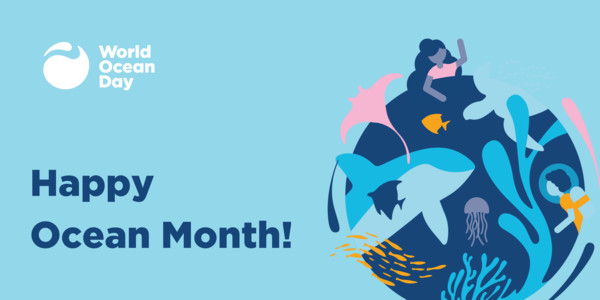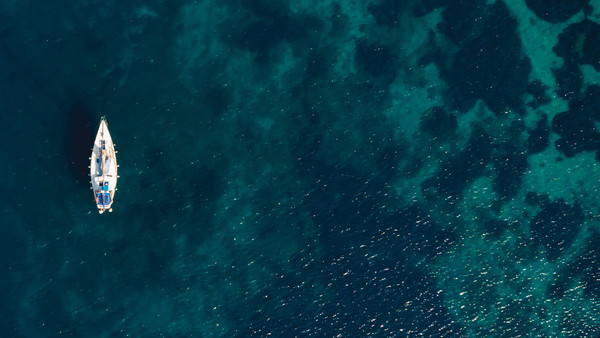TIDES ARE CHANGING
8 June 2023: World Ocean Day. “Tides are changing” is the theme for the 2023 World Ocean Day, which, with cautious optimism, reveals an awareness on the part of institutional decision-makers, scientists, private managers and representatives of civil society of the need to put the sea and oceans at the top of their agendas.
Established in 1992 during the World Summit on the Environment in Rio de Janeiro, World Ocean Day has also been recognised by the UN since 2008, with 140 countries committed to focusing attention on the oceans, devising appropriate medium- and long-term strategies aimed at protecting them, but also at raising the awareness of global citizens on the risks of exploiting the marine environment. This is in line with the goal promoted by the recent COP15 in Montreal to protect at least 30% of our lands, waters and oceans by 2030 (30×30).
The seas and the oceans are the lungs of our planet.
They produce 50% of the Earth's oxygen and have so far helped to stem extreme climate change by acting as a natural balancer. They account for 96% of all water on the Earth's surface and absorb around 25% of the CO2 emissions that human activities emit into the atmosphere every year, greatly reducing the impact of this greenhouse gas on the climate.
More than three billion people on the planet depend on marine and coastal biodiversity for their livelihoods. Globally, the market value of the resources and economy of the sea is estimated at $3 trillion per year, roughly 5% of global GDP. The European Commission's latest Blue Economy report also shows that, despite the negative impact of the COVID19 pandemic and Russia's unprovoked invasion of Ukraine, most blue sectors have improved their economic performance. From 2010 to 2020, there was a significant increase in Gross Value Added (GVA) for the sectors, with 25% growth in marine biological resources activities, 25% growth in port activities, 1,762% growth in offshore wind energy and 22% growth in shipbuilding. Overall, the consolidated sectors of the EU blue economy generated GVA of EUR 129 billion in 2020, a profit of EUR 43.6 billion and total revenues of EUR 523 billion.

Human activities, including pollution, impact the health of the oceans by about 40%. Despite all the benefits, we are taking more from the oceans than can be replenished.
It has been estimated that between 4 and 12 million tonnes of plastic are dumped into the sea every year worldwide. As the International Union for Conservation of Nature reports, more than 200,000 tonnes of plastic are thrown into the Mediterranean Sea alone every year, equivalent to the contents of more than 500 containers. The result is that globally, plastic accounts for 80% of the waste in the oceans, from surface waters down to the seabed. Sources of pollution include urban and industrial waste, which releases both organic substances and non-degradable materials such as heavy metals and radioactive particles into the environment.
For the seventh consecutive year in 2022, the oceans recorded steadily rising temperatures, with the Mediterranean leading the way among the basins where the phenomenon is most evident. Rises that, combined with increasing levels of salinity and greater separation of water into layers, can compromise the natural exchange between the surface and deeper regions, thus altering the movement of fish species. Ocean acidity is a natural phenomenon due to the absorption of atmospheric carbon dioxide. But if CO2 concentrations increase, acidification also increases, resulting in a reduction of other mineral substances necessary for the survival of marine organisms. Average surface acidity, which has remained stable for millions of years, has increased by 26% in the last 150 years. Without specific action, this figure could increase by 150% by 2100.

“Everyone must do their part to improve the condition of our seas and oceans because, in addition to playing an undeniable role in the environment, they also provide millions of people around the world with essential nutrients such as iron, vitamin B12 and omega-3 fatty acids. Starting this year, ECOMONDO is broadening its horizons towards blue growth, including topics of interest to the sectors of the blue economy in its programme: the sustainable fish supply chain, blue skills & jobs, development strategies for European coastal areas and EU initiatives to improve the environmental conditions of the seas and oceans”.
Article written by Massimo Bellavista

